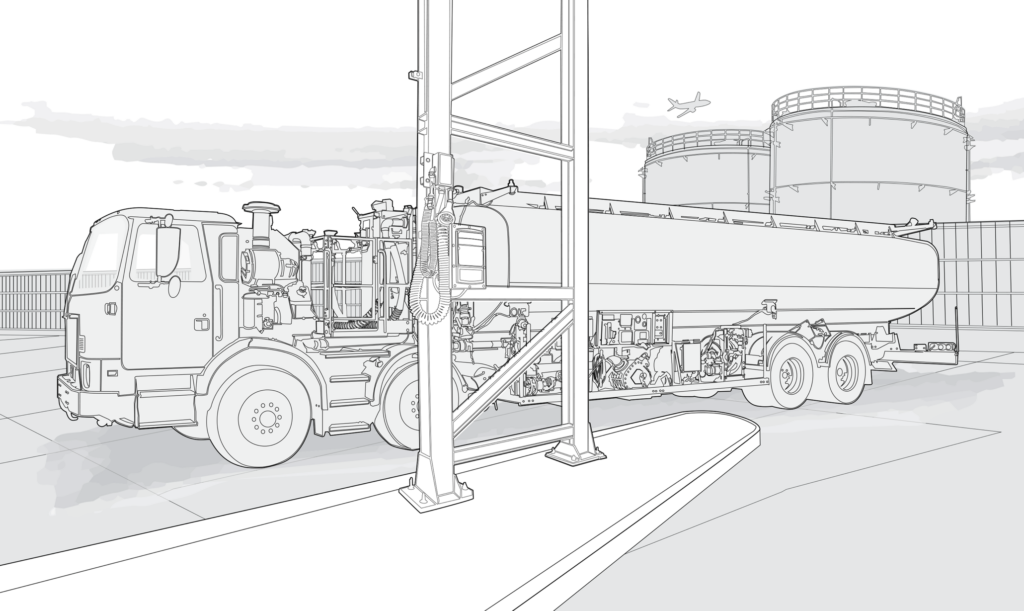Insights: NFPA 407 – Refueler Vehicle Overfill Shutdown Requirement

NFPA 407 – Aircraft Fuel Servicing is the standard that most state fire codes incorporate for the protection of persons, aircraft, and other property during ground fuel servicing of aircraft. On June 2, 2016, NFPA 407 added a requirement for new and existing aviation fuel facility loading racks to be equipped with an automatic shutdown system that stops the tank loading operation when the refueler vehicle tank is full. The effective date of this requirement is June 2, 2021. It is believed that the intent of the 5-year phase in period was to give the regulated community time to implement the requirement.
Meeting this requirement generally includes a controller at the loading rack that interfaces with the pumping system, a level sensor installed in the refueler vehicle cargo tank compartment, and a connecting cable. When the fuel level in the vehicle increases to a predetermined point, the sensor sends a signal to the controller to shut down the fuel pumping system.
There are varying degrees of sophistication for such systems. Additional functionality can include options such as user authorization verification, bonding (grounding) verification, dead man control, multiple compartment indicators, sensor faults, high level alarm with high-high level shutdown, remote monitoring, and reset switches.
The National Air Transport Association (NATA) is a trade association representing the business interests of general aviation service companies on legislative and regulatory matters at the federal level. In the fall of 2020, citing a lack of data supporting the need for additional automatic shutdown systems at airport loading racks, NATA submitted Tentative Interim Amendment (TIA) 1539 to NFPA in an attempt to have language removed from the code pertaining to existing fuel facilities. TIA 1539 was denied in December 2020.

More recently, NATA submitted TIA 1558 which attempts to remove all of the 2016 language from the code. According to NATA “Without the changes proposed in NATA’s TIA 1558, airports, FBOs, and other fuel farm operators across the country would be faced with an unnecessary bill of $6,000-$10,000 per fuel farm loading rack, and $2,500-$3,500 per fuel truck with a compliance deadline of June 2, 2021.” More information on NATA’s NFPA 407 Initiative can be found here.
As of this writing, the refueler vehicle overfill shutdown requirement by June 2, 2021 is still in effect. C&S will continue to monitor the development of this story.
Bill Frye
Senior Project Engineer
Bill can be reached at (315) 703-4316 or by email at bfrye@cscos.com.